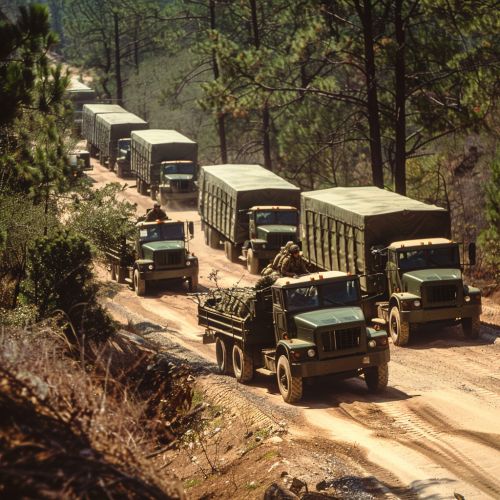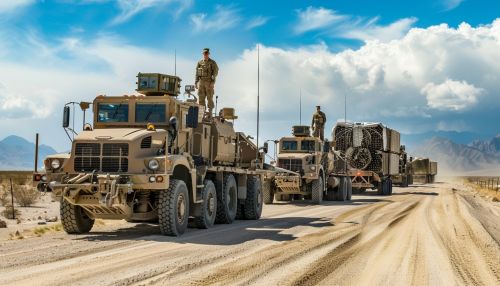Military Logistics
Overview
Military logistics is the discipline of planning and carrying out the movement and maintenance of military forces. In its most comprehensive sense, it is those aspects of military operations that deal with: design and development, acquisition, storage, movement, distribution, maintenance, evacuation, and disposition of materiel; movement, evacuation, and hospitalization of personnel; acquisition or construction, maintenance, operation, and disposition of facilities; and acquisition or furnishing of services.
History
The concept of military logistics has been practiced since the ancient times. During the Roman and Macedonian periods, military logistics were highly organized and were considered as a critical aspect of military campaigns. The Romans, in particular, had a well-developed system of supplying their troops with provisions, equipment, and other necessary items.
Modern Military Logistics
In the modern era, military logistics has evolved into a complex science that encompasses a wide range of activities. These include the procurement, maintenance, distribution, and replacement of personnel and materiel. Modern military logistics also involves the planning, administration, and execution of strategic and tactical movements of armed forces.


Logistical Challenges
Military logistics presents numerous challenges, not least of which is the need to operate in diverse and often hostile environments. These challenges can be broadly categorized into physical, operational, and strategic challenges.
Physical Challenges
Physical challenges in military logistics relate to the geographical and environmental factors that can impact the movement and supply of military forces. These can include difficult terrain, adverse weather conditions, and the lack of infrastructure in the operational area.
Operational Challenges
Operational challenges in military logistics relate to the complexities of planning and executing logistical operations. These can include the need to coordinate the movement of large numbers of personnel and equipment, the need to maintain supply lines over long distances, and the need to ensure the security of logistical operations.
Strategic Challenges
Strategic challenges in military logistics relate to the broader strategic considerations that can impact logistical operations. These can include the need to balance the allocation of resources between different operational areas, the need to anticipate and respond to changes in the operational environment, and the need to align logistical operations with broader military and political objectives.
Logistics Planning
Logistics planning is a critical aspect of military logistics. It involves the systematic process of determining the logistical requirements of a military operation, and developing a plan to meet these requirements. This can involve a wide range of activities, from the procurement and distribution of materiel, to the planning and execution of troop movements.
Logistics Management
Logistics management in the military context involves the administration and coordination of logistical activities. This can include the management of supply chains, the coordination of transportation and distribution activities, and the management of logistical resources.
Logistics Support
Logistics support involves the provision of logistical services to military forces. This can include the supply of food, water, fuel, and ammunition; the maintenance and repair of equipment; and the provision of medical and other support services.
Future of Military Logistics
The future of military logistics is likely to be shaped by a number of trends and developments. These include the increasing use of technology in logistical operations, the growing importance of sustainability in military logistics, and the ongoing challenges of operating in complex and uncertain operational environments.
